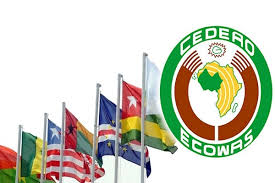From Anthony Nwachukwu, Lagos
Professional groups, businesses and individuals have been urged to bolster ongoing trade facilitation initiatives in West Africa by utilising the ECOWAS Trade Alert Mechanism (TOAM) to eliminate Non-Tariff Barriers (NTB) to trade across the sub-region.
TOAM, an online platform for complaints reports, was initiated to address NTBs such as lengthy clearance times, transit checkpoints with unwarranted delays, harassments, exorbitant illegal fees and demand for bribes, among others, with their far-reaching consequences.
Backing the initiative to eliminate NBTs, the Executive Secretary/Chief Executive Officer of the Nigerian Shippers’ Council (NSC), Mr. Emmanuel Jime, said it will also foster seamless and efficient movement of goods in the region and beyond while reducing the private sector’s trade-related time and cost burdens.
Jime, during a sensitisation workshop organised by the NSC and ECOWAS Commission and United States Agency for International Development (ECOWAS-USAID) in Lagos over the weekend, said it was to create awareness of the role of professional organisations and stakeholders in eliminating NTBs using TOAM.
He described the topic as not only crucial but also timely, given the region’s aspirations for economic growth and regional integration. He added that numerous studies conducted along the borders of West African nations have consistently highlighted the impediments to traders, particularly in border crossings and customs clearance processes.
These barriers “not only disrupt the seamless flow of goods but also pose a direct threat to our regional integration endeavours,” he explained.
“We are at a juncture where acknowledging the challenges is no longer sufficient. We have a solemn duty to identify practical solutions that will significantly reduce the prevalence of these obstacles.”
Therefore, TOAM emerged as a potent tool engineered to mitigate non-tariff barriers across the region, and operate via an online reporting system bolstered by a handpicked inter-agency network, he said.
He explained that businesses could promptly submit or report obstacles to public-sector agencies, receive responses and remain informed about queries submitted by fellow operators concerning specific products, activities/actions or countries.
Meanwhile, Jime disclosed that over 400 obstacles have already been reported so far across West Africa through TOAM, with over 49 per cent of them effectively addressed “by national focal points representatives, supported by advisory services from the International Trade Centre (ITC).
“Our overarching objective is to bolster ongoing trade facilitation initiatives in West Africa, fostering the seamless and efficient movement of goods in the region and beyond while reducing the private sector’s trade-related time and cost burdens.
“Collectively we can dismantle the barriers that impede our progress and lay the foundation for a more prosperous and integrated region.”
Justifying the initiative, the Principal Trade Advisor, ECOWAP -USAID Operational Programme, ECOWAS Commission, Mr. Justin Bayili, stressed the need to create a conducive environment for trade facilitation in the region.
While commending the approach as capable of bringing sustainable solutions, he warned that multiple reports without response “will make the person to lose focus.
“Two months ago, we took a trip from Mile 2 to Badagry and experienced 67 checkpoints. This delays goods, thus making the goods costly for the business community.”
Similarly, the President of Ikom Chamber of Commerce, Mrs. Flora Takim-Ndifon, said that TOAM’s greatest strength is the knowledge that one could do business legitimately without any fear of hindrance from anybody.
“If TOAM works and becomes effective, it would ease business operations because everyone – traders and government agencies, will be monitored via the platform,” she stated.
“So, if there is an infraction, one can call in real time and get a response immediately. Definitely, this will be different from a situation where we don’t even have an opportunity to report a problem or get a solution.”
However, she regretted that though the region has great policies, “we usually have problems with the implementation. If we are all sincere and let TOAM work, it will actually enhance the ease of doing business, particularly cross-border business.”
Meanwhile, she noted that though the Nigerian-Cameroun trade volume is low due to numerous challenges, the introduction of TOAM could help escalate it, “with trucks conveying goods and not just small vehicles with a few items.”



